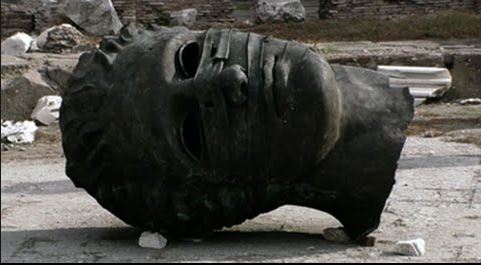Nemo dat quod non habet—“No one gives what he doesn’t have.”
Within the legal world, this phrase refers to the principle that one cannot confer property on another that doesn’t belong to him in the first place. Another way of putting it: A can’t steal from B and then rightfully sell or give the stolen goods to C.
But I believe this phrase also has cultural implications.
Tradition is the process of handing something down to another. In a culture, tradition refers to the process of older generations handing on to younger generations those characteristics, customs, and ideas that express the identity of the culture.
But when older generations fail to do their part in the process, it creates a rupture in the identity of a culture as the younger generations fail to be fully initiated into the society’s intellectual and/or moral traditions.
It seems like such a rupture has already taken place in America. Most of us have not received an education in the sources that sustained the West for over 2,000 years, and fluency in the very tools of learning (“the basics”) is in decline. Many do not possess the practical skills of previous generations that ensured they could survive (or at least have a fighting shot at it) should economic crises occur. The religious and moral landscape of America is rapidly changing, and looks dramatically different from that of say, one hundred years ago. Some may think this rupture is a positive development, but it is a rupture from the past nonetheless.
Once the rupture happens, a snowball effect takes place. Remember: Nemo dat quod non habet—“No one gives what he doesn’t have.” New generations cannot effectively hand on what has not been given to them. Prior ideals, skills, and standards become quickly eclipsed, and are only learned and remembered by those who make the heroic efforts. And, if you have even a bit of knowledge of human nature, you know that what is left purely to heroic effort and self-determination is going to be the province of a very small minority. And that minority becomes smaller with each generation.
This is what happened at the end of the Roman Empire. The Western world did not enter into the Dark Ages immediately upon the Fall of Rome. The initial barbarian tribes actually had great respect for the intellectual traditions of Rome, and made some efforts and concessions to preserve them. The Dark Ages came about as a gradual failure of the traditioning process, a failure that began before Rome fell.
Nemo dat quod non habet. If you think things are bad now, wait another 20-30 years.
















Leave a Comment
Your email address will not be published. Required fields are marked with *